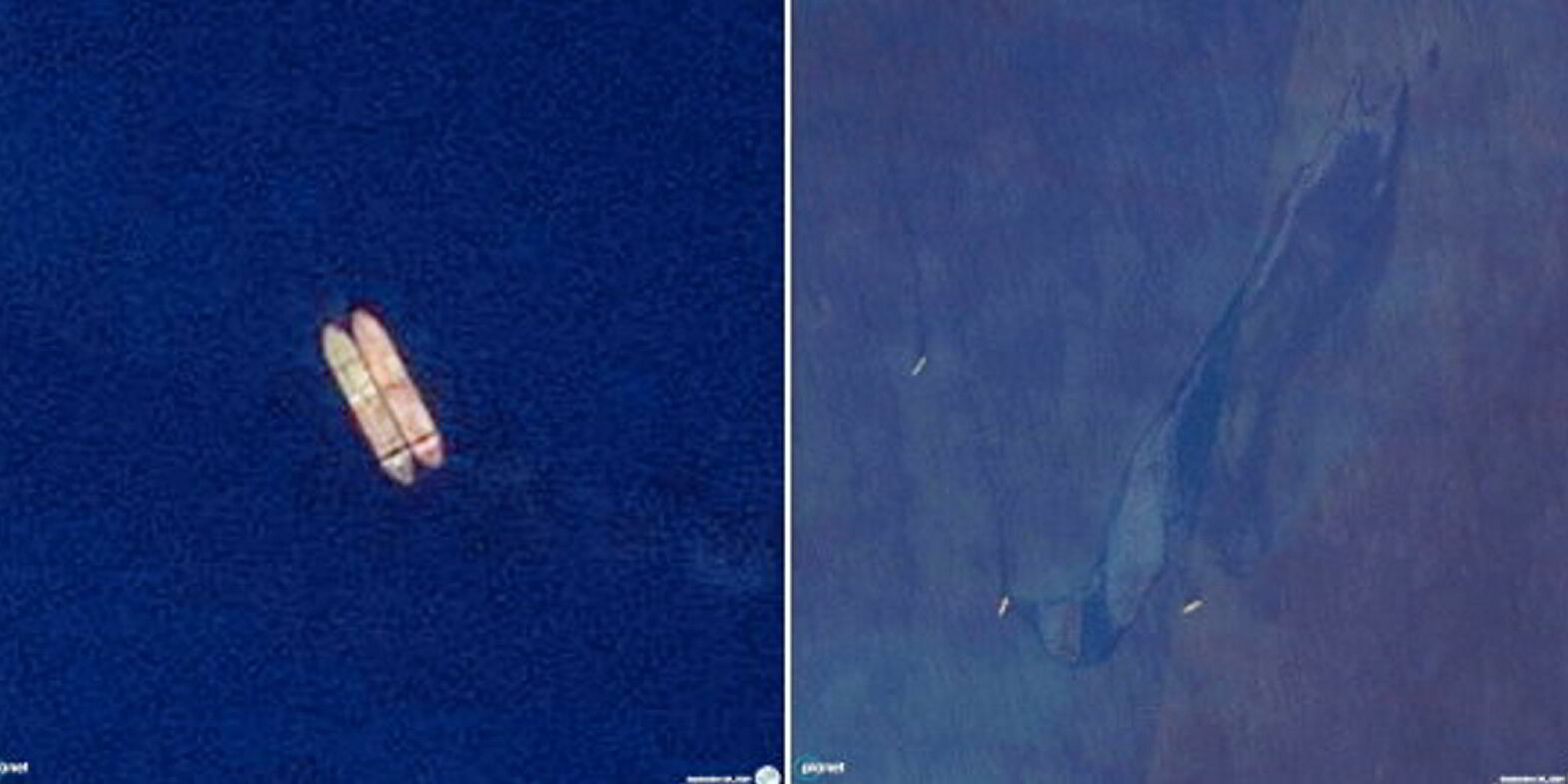Mainstream shipping figures have long been warning of the environmental effects of elderly tankers trading in illegal oil cargoes.
Now TankerTrackers has come up with what it says is a concrete example — an oil spill in the Middle East during a ship-to-ship transfer operation.
The company posted a picture of two unnamed “dark fleet” crude tankers locked together in a cargo transfer at the end of September.
A second image provided by satellite imaging company Planet shows a slick in the same area the following day.
TankerTrackers said: “Rather than loading at a nearby port, these two dark fleet tankers engaged in an STS transfer at the intersection of Kuwait, Iraq and Iran.
“Next morning, we see a spill equivalent to around 5,400 barrels,” the company added.
And TankerTrackers warned: “These spills happen regularly and go unreported.”
Vessels involved in trading Iranian and Russian oil are known to transfer cargoes as part of covert global export operations.
Last month, Greece’s navy said it would continue to disrupt STS transfers of Russian oil on tankers in the Laconian Gulf.
Vessel drills have been extended in the area into November, according to a notice on the Hellenic Navy Hydrographic Service’s website.
Vessels dispersed
The manoeuvres had been due to end in September.
Operations began in May in the Gulf, causing vessels anchored there to disperse.
The drills have sent Russian-trading tankers into new locations in the Mediterranean, Red Sea and off West Africa.
Meanwhile, Iranian crude oil exports have reached the highest level since 2019, according to Kpler.
The consultancy recorded tanker loadings at Iranian ports averaging 1.92m bpd in September — roughly the equivalent of a VLCC’s daily capacity — despite ongoing US sanctions.
This was a month-on-month increase of 430,000 bpd.




